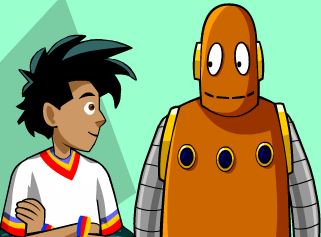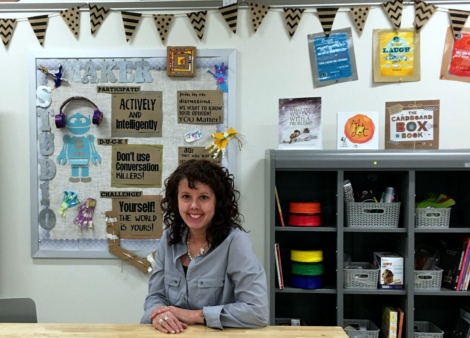
BrainPOP Guest Blogger Josh White Shares His Experience Using BrainPOP ELL in the Middle East
Posted by cemignano on
Wondering about using BrainPOP ELL in the Middle East? Joshua Z. White is an Eagle Scout and a graduate of Motlow College in Lynchburg, TN and Tennessee Tech University in Cookeville, TN. Right now he is currently pursuing a Masters of Educational Leadership with Arkansas State University, and even considering attending law school. Since August 2011 he has been teaching English, Mathematics, and Science to grade four and five students in the Middle East.
Greetings from the Middle East! My name is Josh and I am a former educator from Georgia. Three years ago the state cut our budgets to the bare bones, and as the low man on the totem pole I was left without a job! It’s been an adventure that saw me working in a department store and selling cars, to walking the sands of the Arabian Desert! It has been an adventure that by no means I regret, even with all the challenges of moving to a foreign country – which with all due respect to my new home, might as well be a foreign planet!
In my classroom I have 50 students between 2 classes. I teach fourth and fifth grade boys from Oman, United Arab Emirates, Egypt, Jordan, Syria, Sudan, Iraq, Saudi Arabia, and Comoros. Basically I have students from most regions of the Middle East and North Africa. Their native language is Arabic, but much like the English language, every country has its own twist, slang, and words used for different things. Many times there can be a disagreement on whether a word is appropriate in Arabic. For that matter, it is often amusing listening to my colleagues from Australia, South Africa, New Zealand, and United Kingdom as we often have different words for the same thing. As somebody who speaks English natively, has studied French and Spanish, and taught in a school district that was highly Hispanic, I can say that learning English is not easy for my students. In many cases, some students cognitively cannot process the different sounds of a language that is just as confusing as their own.
When teaching sounds and letters to a native Spanish or French speaking student, they can grasp the sounds as the alphabet is for the most part the same, and many of the same sounds are represented. In Arabic, they are missing many of the same sounds that we use in the English language. Take “P” for example. It simply has no correlation to the Arabic language. Most of my boys pronounce the letter “P” as a letter “B”. In other words Papa becomes Baba and the word Pig can become Big. Since pigs are haram, it makes teaching the letter P interesting!
Then there are letter sounds – long vowels, short vowels, blends, random rules for different words, or letters like K and C for example, which can sound alike. This year it is Y and U, b, d, p, g, q, that my boys are having a difficult time with. Fortunately my students have now have had English from day one of their education, but in this country, making it interactive is the key. Enter BrainPOP ELL. Pictorial clues for any words help, and memory games are an amazing asset! That is why my first year here the one thing I missed more than anything was Tim and Moby! That is why you are now reading this! Their adventures together were always enjoyable in my classroom at home, and now my students here, 9000 miles away from home, are enjoying Ben and Moby while they learn English. I’ll try to keep you up to date on what is happening here, and our adventures with Ben and Moby as we go along!














